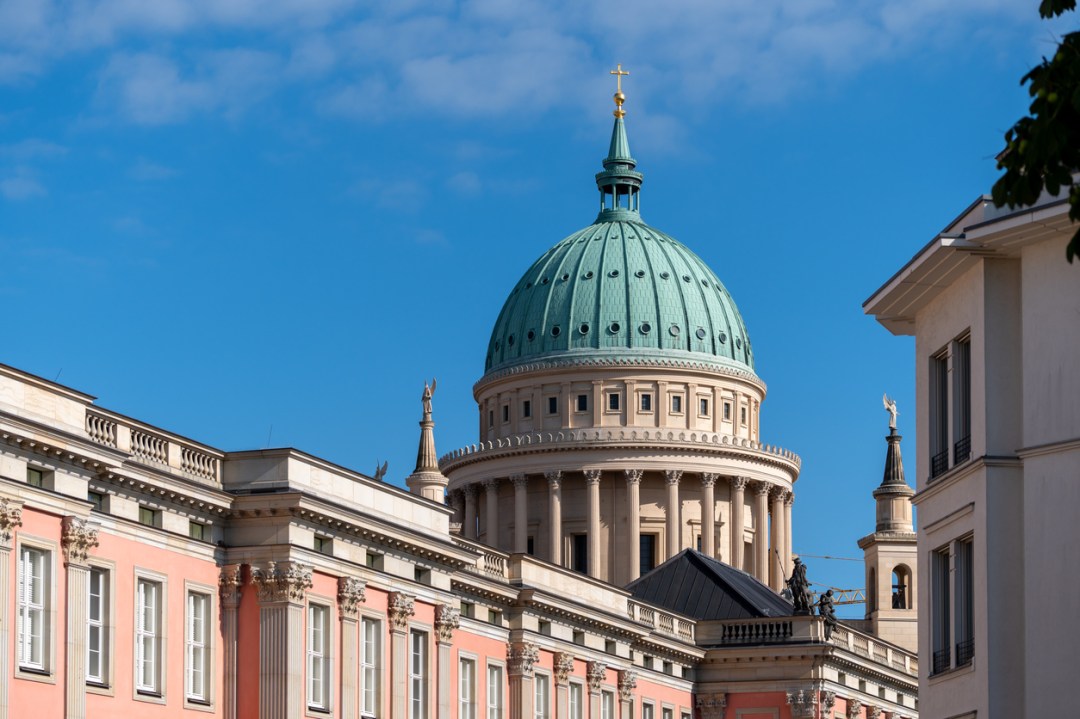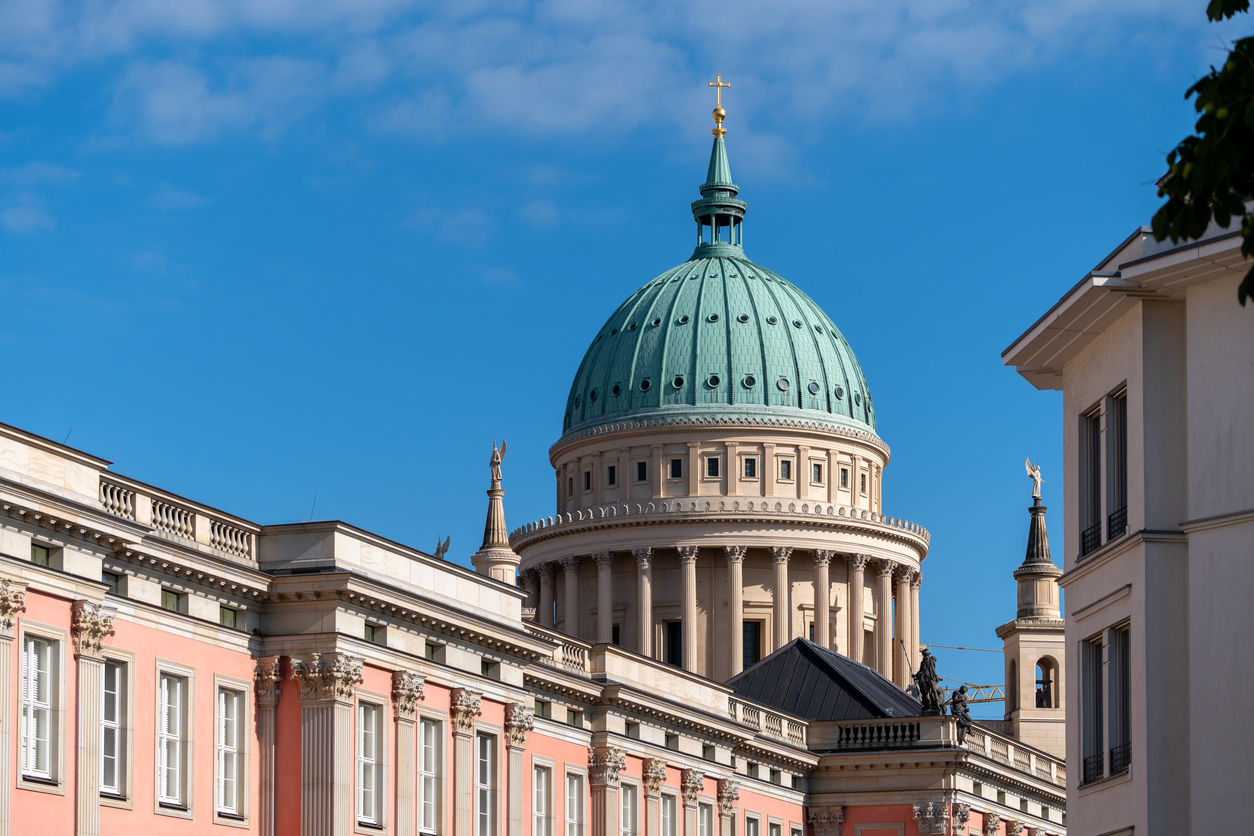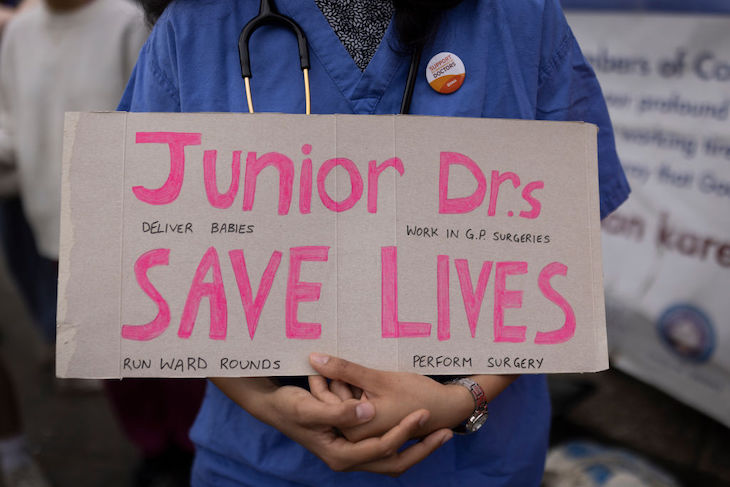Guten Tag – or, as they more often say in these less formal times, Hallo – from constituency number 061, otherwise known as Potsdam, a city of parks, palaces, film studios and Prussian-ness. For the British, Potsdam will always be the place where the victorious Allies met to carve out the zones of Germany’s occupation – a division which led to Germany becoming two separate countries. After reunification in 1990, Potsdam was designated the capital of the state of Brandenburg.
The Potsdam vote will be a test of both the left and far-right’s capacity to broaden its appeal
In so far as many German cities have a complicated history, the history of Potsdam, less than half an hour from the centre of Berlin, is more complicated than most. The direct S-Bahn overground route into Berlin passes through Wannsee, where in 1942 Nazis are said to have plotted the ‘final solution’ to annihilate Europe’s Jews. In the Cold War Potsdam languished as an outpost of the East. More than 30 years after the fall of the wall, Potsdam is still a work in progress, pockmarked with building sites, some left by British bombing, others from the demolition or collapse of communist-era monstrosities.
While the destruction wrought by the British now tends to be treated lightly – you have to read the visitors’ notes for the 17th century St Nicholas Church on the Old Market Square quite carefully to find out that it was almost entirely destroyed by British bombing and rebuilt in the 1980s thanks to a gift from West Germany – there are prominent reminders of other aspects of the war.
This month, visitors can follow a trail commemorating the 80th anniversary of the Death March of more than 1,000 concentration camp inmates, who passed through the ruined centre of Potsdam on their way from their destroyed camp at Lieberose on foot, in winter, to the Sachsenhausen camp north of Berlin. On a rather lighter note, Communism has left its marks, too, in art and design. You still come across examples of GDR style service without trying too hard either.
But it is the politics of today that has propelled Potsdam back on to the national map. It has been described by Germany’s public service broadcaster as the country’s most exciting, most tense, or most closely-fought contest in this weekend’s general election.
This is not only because the race to win constituency 061 is on a knife-edge, and not only because two of those on the ballot paper are perhaps the most recognisable figures in Germany’s outgoing government – Chancellor Olaf Scholz for the SPD (social democrats) and Annalena Baerbock, the foreign minister, from the Greens – but because the result could go one of two ways. It will either reinforce current trends in German politics, or defy them, as Potsdam’s post-communist politics has tended to do.
This is an election that was not supposed to be happening until the autumn, but it had to be brought forward after Scholz’s three-way coalition with the Greens and the free-market FDP collapsed.
As Germans goes to the polls – with as many as four in ten voters still uncertain not only about who they will vote for, but whether they will vote at all – the national polls suggest a quite stable picture. The centre-right CDU-CSU led by Friedrich Merz, is set to come in at around 30 per cent, the far-right Alternative für Deutschland around 20 per cent, and the Social Democrats and the Greens likely to be vying for third and fourth place. The FDP and the far-left Linke may or may not reach the 5 per cent threshold to be represented in parliament.
At regional elections last autumn, Brandenburg, with Potsdam in the vanguard, bucked the trend of former East German regions swinging strongly to the right. The Social Democrats held on to power here, albeit without an overall majority, choosing to continue as a minority government, seeking allies on an ad hoc basis.
The question is whether this trend will be maintained in these federal elections. Will Potsdam voters stand by their constituency MP Olaf Scholz and the Greens’ Annalena Baerbock. Or will it join most of the rest of the country and move right – and if so, how far right?
The unpopularity of the current government is expected to claim many SPD and Green scalps across Germany. But Potsdam has hitherto remained loyal to the left and its local celebrities. If it chooses to punish them for their leading role in a coalition that is seen by many to have brought little but woe – from higher fuel prices, to more general inflation, to lost jobs – then Germany’s left will be in even more trouble than it already is.
The Potsdam vote will be a test of both the left and far-right’s capacity to broaden its appeal. The likely next Germany Chancellor, Friedrich Merz of the CDU, held a rally in the city this week. It drew a motley group of protestors – the majority were against the far-right and specifically against Merz’s decision, in the dying days of the last parliament, to breach the ‘firewall’ by joining the AfD in a vote to toughen asylum policy. That Merz chose to give a major campaign speech at this crucial stage of the campaign in Potsdam says something about the way the centre right sees German politics moving, and its hopes of keeping the further right at bay.
In recent elections, Constituency 061 has been almost the opposite of a bellwether for Germany. Today will show whether it remains one of a kind in its politics or has been swept up in what is forecast to be a decisive national swing to the right.








Comments